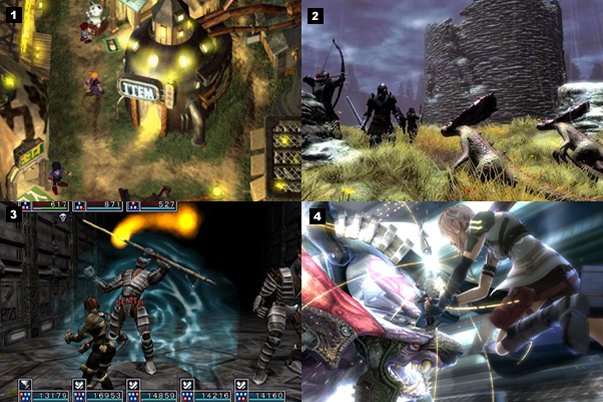Trendsetters week 3: RPGs
Strictly for the dedicated - it's the genre that consumes the most hours
The pioneer %26ndash; Final Fantasy VII | 1997 | PS1
Some have argued that FFVII was overrated, but there was never any doubt in our minds. Almost every aspect of it was a monumental step up from Final Fantasy VI. Its beautiful 3D environments, a convoluted plot that pulled on the heartstrings, and sheer damn length stunned gamers worldwide. Character development was pushed further than it had ever been, and despite the dodgy half size character models, comically lacking half of their facial features, they generated genuine emotional attachment. So much so that people are still trying to find ways to resurrect Aeris, while Cloud has gone on to be the archetype for every RPG hero since. Single handedly responsible for making RPGs mainstream in the West.
Raising the bar %26ndash; The Elder Scrolls IV: Oblivion | 2006 | PC |Xbox 360 | PS3
A slap in the face to anyone who thinks offline means linear, the two most pertinent questions when faced with Oblivion are %26ldquo;where to start?%26rdquo; and %26ldquo;when to stop?%26rdquo; This is a game where you can do practically anything, from stealing horses and playing gladiators to joining guilds, protecting innocents and, in one particularly bad case of karma, contracting vampirism. Such breadth of content is balanced by two new mechanics %26ndash; the monsters strength varies depending on yours (much more successful than the similar system in FFVIII ), so they always present a challenge, but no area is ever off limits because you are too weak; and there are no levels. Skills are honed by using them, encouraging you to do all manner of obscure tasks. Which partially justifies our penchant for stealing horses. Don%26rsquo;t forget the story %26ndash; for once in a good RPG, that is very easy.

Sign up to the GamesRadar+ Newsletter
Weekly digests, tales from the communities you love, and more


